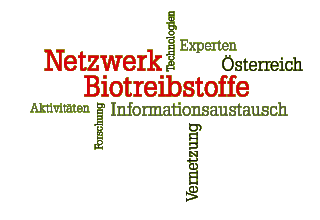CLEANER SKIES ARE FRIENDLIER: NRDC’s 2016 Aviation Biofuel Scorecard
The aviation industry is the transportation sector with the fastest growth in GHG emissions. The industry is making efforts to develop alternative liquid fuels to meet two goals: capping its carbon emissions by 2020, and reducing emissions 50 % from 2005 levels by 2050.
All biofuels should meet high sustainability standards, and the aviation industry should send signals that shape the biofuels sector as a whole by committing to sustainability-certified biofuels. Natural Resources Defense Council (NRDC) Aviation Biofuel Scorecard aims to encourage airline leadership to adopt sustainable biofuels through third-party certification standards. Now in its third year, the Scorecard has emerged as the premier global measure of airlines’ progress toward this goal.
Sustainability concerns have surrounded first-generation biofuels. In response, the Sustainable Aviation Fuel Users Group (SAFUG), with its 28 members representing 1/3rd of commercial aviation fuel demand, has adopted a set of criteria. SAFUG pledges to use criteria consistent with and complementary to emerging internationally recognized standards such as those being developed by the Roundtable on Sustainable Biomaterials (RSB). RSB is widely regarded as the gold standard among an emerging set of certification systems.
NRDCs Scorecard concludes with the following recommendations to ensure that the aviation biofuel sector will grow in the most sustainable way possible:
Airlines should make public commitments to source only aviation biofuels that have been RSB-certified, and communicate this to fuel and feedstock producers.
Airlines that have not yet made a commitment to using sustainable aviation biofuel should do so.
Airlines that do not yet have a firm contract for delivery of RSB-certified biofuels should explore and secure a delivery contract.
Airlines should strive for transparency in aviation biofuel volumes, GHG emissions, and sustainability certification.
To meet the industry’s GHG emissions reduction goals, SAFUG and the International Air Transport Association should firmly commit to using the RSB certification framework.
All airlines should establish a clear policy that prohibits the purchase of fossil fuels.
Airlines should limit their use of forest-derived biomass feedstocks to those that will demonstrably reduce carbon emissions in the near term and will not threaten natural forest ecosystems, e.g. sawmill residues that would otherwise quickly decompose.
Any biofuel credits should be based on validated life-cycle carbon performance. Credits should also account for ILUC and include sustainability requirements consistent with RSB.
Airlines deserve credit for their substantial efforts to develop sustainable fuels. By fortifying their commitments to sustainability, airlines can advance even further and contribute to the growth of sustainable fuel supplies throughout the transportation sector.
The report identifies Air France/Royal Dutch Airlines, British Airways, Cathay Pacific Airways, Scandinavian Airlines, South African Airways and United Airlines as “Leading Airlines” which are characterized by broad involvement in creating sustainable fuel supply chains, as well as solid commitments to use and purchase sustainable fuel.
The Natural Resources Defense Council is an nonprofit environmental organization. Since 1970 NRDC has worked to protect the world’s natural resources, public health, and the environment.
Source: nrdc
Download Report


